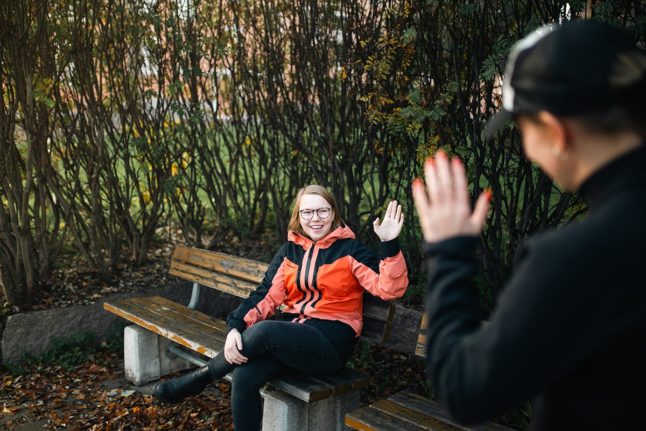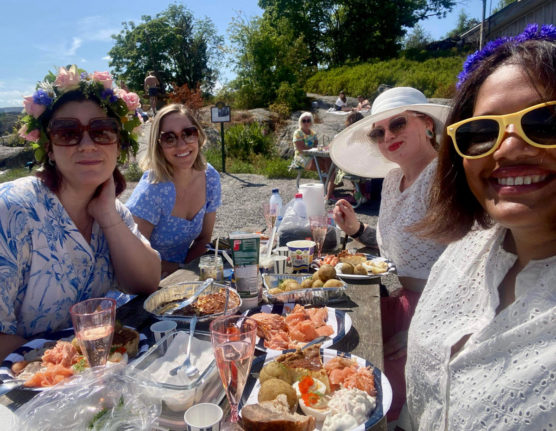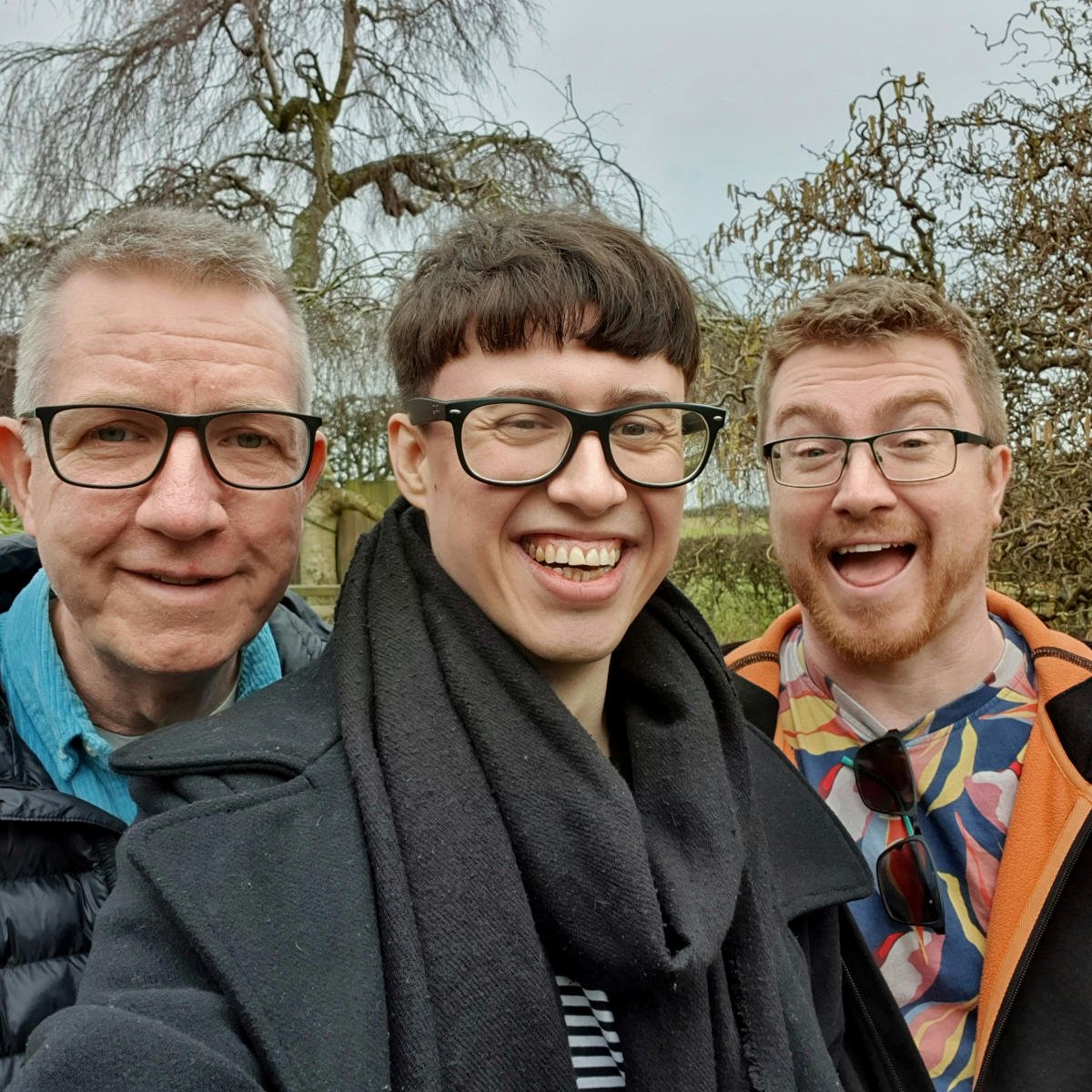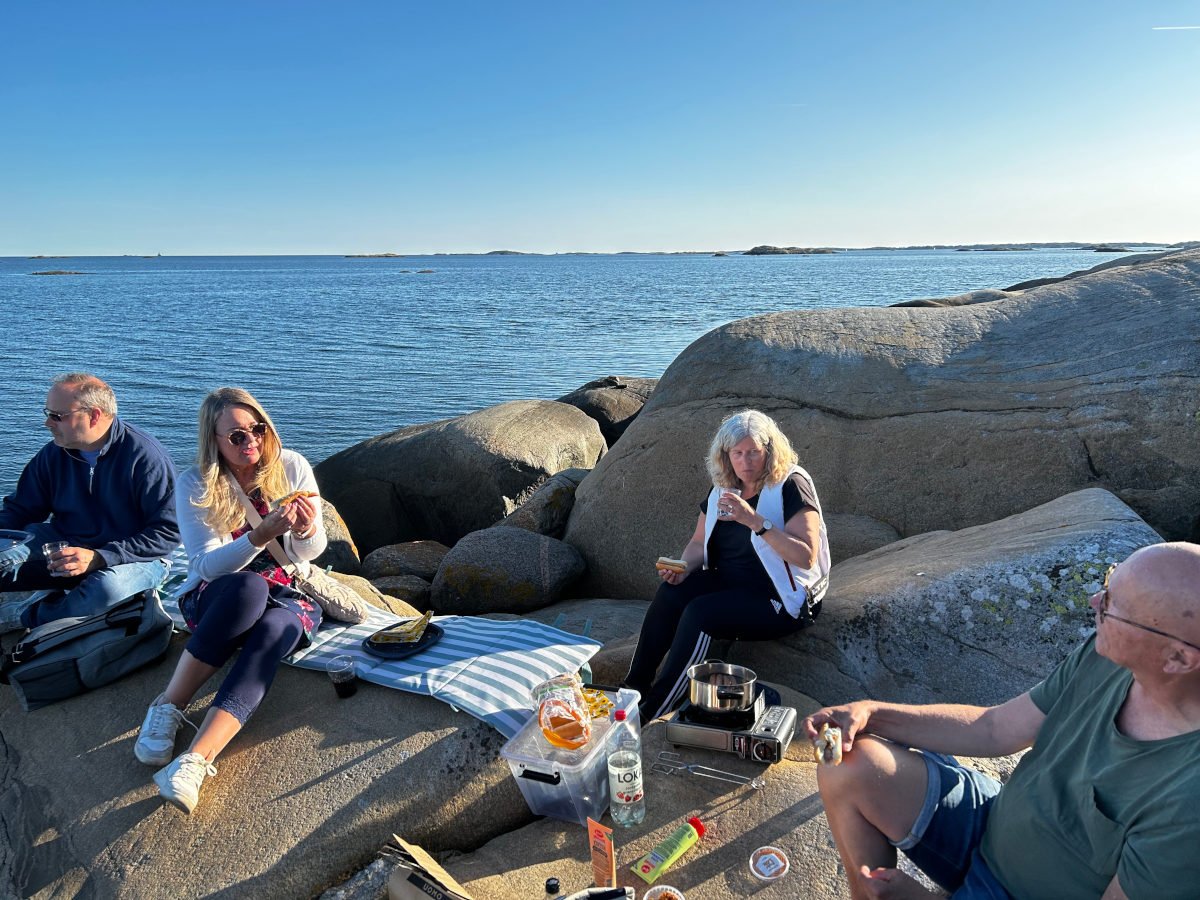The “Säg hej” campaign (“say hi”), which aims for a “warm and friendly Luleå”, was launched on October 31st, which marks “neighbour’s day” in Sweden, and involves a film extolling the benefits of greeting others, which will be shown over four weeks in schools, on buses, and in prominent public places around the city,
The film shows a young man walking past a young woman resting on a park bench and saying “hej”, after which the woman, who does not respond, smiles broadly. It then shows that same woman saying “hej” to an old woman, who similarly does not respond but smiles afterwards.
“Saying ‘hello’ makes people happy and feel safe and secure,” reads the message that follows afterwards. “This is something we can all do to create a more pleasant Luleå. Your ‘hello’ can make all the difference.”
Åsa Koski, the municipal social strategist behind the campaign, told The Local that the hope was that increasing the incidence of greeting in the city would improve the atmosphere.
“I think we are a bit more withdrawn than in the south of Sweden,” she explained. “We also see that outside the city, they’re much better at saying ‘hello’ to each other than we are in Luleå, and – I don’t have any evidence for this – but I think we used to also be better at saying ‘hello’ to each another back in the old days.”
Luleå is one of the biggest cities in northern Sweden and the regional capital of Norrbotten, a part of Sweden renowned for having locals so taciturn that they replace the word “yes” with a sharp intake of breath.
Koski said that the municipality had drawn on research which indicated that having a wider circle of acquaintances and neighbours, what it describes as tunna band (literally, “thin connections”) was more important for people’s mental health than had previously been recognised.
“What we want to do with the campaign is to encourage people to say ‘hi’ to build and strengthen these more superficial relationships or tunna band with other people.”
These connections, she said, made people feel more acknowledged and secure in their communities, reduced the problem of involuntary loneliness, and made conflict with neighbours less likely.
Koski said that she also hoped that the campaign would contribute towards “strengthening empowerment by giving each and everyone a tool (saying hello) and by that the power to create an (even) better and nicer society”.





 Please whitelist us to continue reading.
Please whitelist us to continue reading.
Member comments